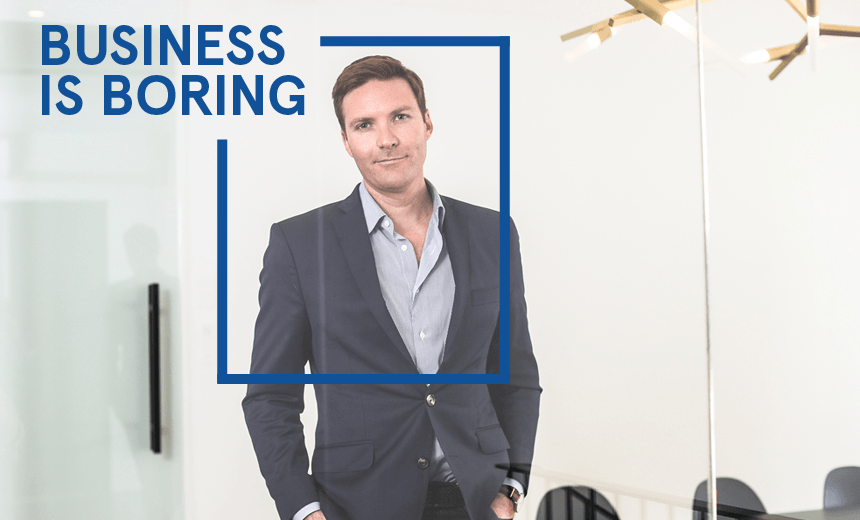Business is Boring is a weekly podcast series presented by The Spinoff in association with Callaghan Innovation. Host Simon Pound speaks with innovators and commentators focused on the future of New Zealand, with the interview available as both audio and a transcribed excerpt. Today Simon talks to Mark Hurley about building up ventures then knowing when to sell.
Today’s guest is a serial entrepreneur. If you haven’t heard of his latest company you’ve very likely seen their work on awarded and effective websites for clients like Marketo, Visa, Air New Zealand, Spark and Les Mills. Having started just six years ago with a perfectly timed mix of design, brand marketing, and build for the market, his agency Little Giant came and got big fast. Little Giant was one of New Zealand’s fastest growing companies in 2015 on the Deloitte Fast 50. One of Asia Pacific’s fastest growing companies in 2015 and 2016, and Mark was named an EY Entrepreneur of the Year finalist in 2017.
They grew big and they got bought by one of the leading players in global advertising, the $11 billion annual revenue behemoth Dentsu Aegis. It’s a huge achievement in a short time but it wasn’t Mark’s first rodeo. He’s been starting companies since he was 17 and learned some hard lessons along the way that he’s turned into his exit and next launching pad. Mark Hurley joined us on the podcast.
Either download (right click to save), have a listen below, subscribe through iTunes (RSS feed) or read on for a transcribed excerpt.
Either download (right click to save), have a listen below, subscribe through iTunes (RSS feed) or read on for a transcribed excerpt.
Having sold a company before, did you already have an exit plan? Did you start this thinking ‘this is something I wanna spin up and get out of’ or was it a long term goal?
It was a long term thing for me. I never planned to sell the company at all. I am a big believer, though, in always having your company ready to sell even if you have no intention of doing so. I think that’s just good business practice. But no, I had no intention to sell Little Giant when we did. It just came down to getting a unique opportunity and it felt really aligned with what we wanted to do with the company going forward.
How did people react?
They’ve been great. A large part of the negotiation with Dentsu wasn’t as much about the price of the acquisition but a lot about control and making sure we were able to maintain our brand and our identity and our culture. And that’s what people really care about. The way that I framed this deal to them is we’re staying the same old Little Giant. We’re still going to be independently minded, it’s just that now we have this global capability and resources when and if we need them.
What does it allow you to do? What does it mean for you now to look at a situation where there is the resource and there is the backing?
For me being an entrepreneur it’s always been kind of boot strapped everything. So now it’s really nice having that global support. The main reason we wanted the additional capabilities they bring is around technology. Right now in New Zealand, we support the PHP: Stack, so very hard for us to build teams across all the available emerging technologies and then be able to maintain those teams and service the market with the size of New Zealand. What this gives us the capability to do today is deliver across a whole bunch of technology platforms that we simply wouldn’t have been able to if we stayed as an independent. So really the way that we frame that is we feel like our ideas are no longer restricted by our technology. We have the ability to deliver AR and VR solutions tomorrow, for example. We previously just couldn’t do that with our inhouse team.

